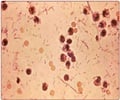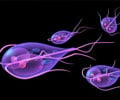Malaria vectors in India, their importance and geographical distribution
- 44 Indian Anopheles species are present.
- Only 6 are vectors, which can spread malarial infection.
Anopheles culicifacies
- Mosquito present in rural areas.
- Breeds in gentle flowing and stagnant clean waters.
- Prefers cattle blood rather to human blood.
- Responsible, for epidemic malaria.
Anopheles fluviatilis
- This mosquito is responsible for endemic malaria.
- Distributed mostly in hill and foothill areas.
- Breeds in slow-running streams with vegetation, irrigation and field areas.
- It prefers human blood.
Anopheles stephenis
- This malarial vector known to be the root cause of urban or domestic malaria breeds mostly in stagnant water, for example, water in the unused or partially used wells and overhead tanks.
- This vector is behind most of the malarial epidemics in urban localities.
Anopheles sundaicus
- Salt-water breeder mosquito feeds on human blood.
- It breeds in saline lakes, lagoons, salt-water marshes and water stagnant in seacoast areas.
Anopheles minimus
- Prominent vector found in tea gardens.
- Breeds in irrigation channels, shallow wells and slow running streams with marginal vegetation.
- The mosquito prefers human blood.
Anopheles philipenensis
- This vector has a strong presence in West Bengal.
- Breeds in sub soil with high water level.
- Stagnant water and cracks in soil also provide a fertile breeding ground for these vectors.














